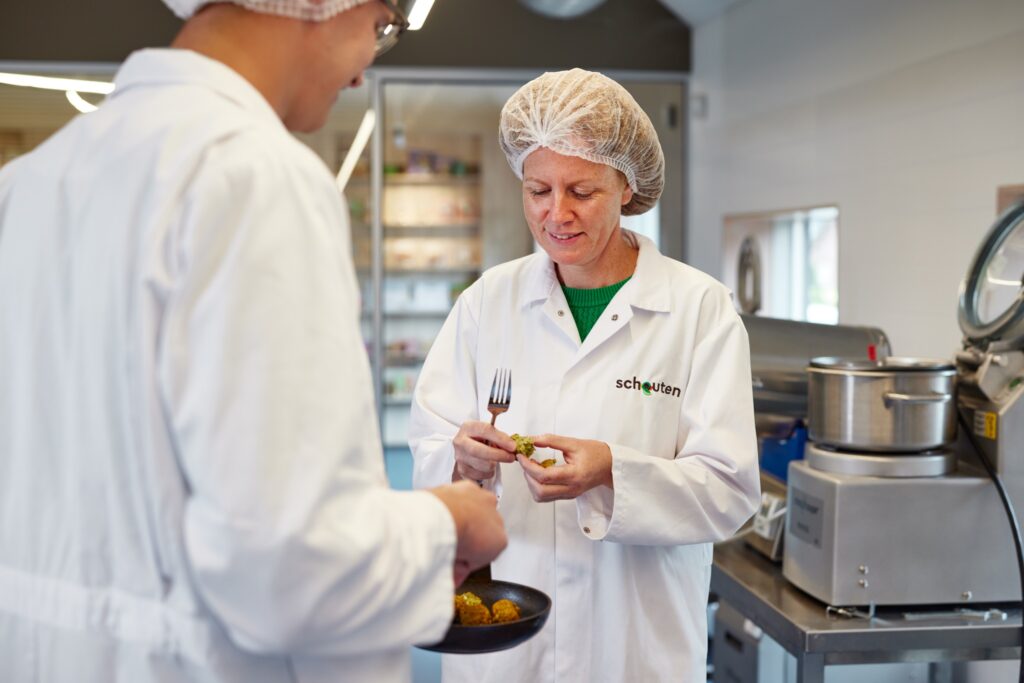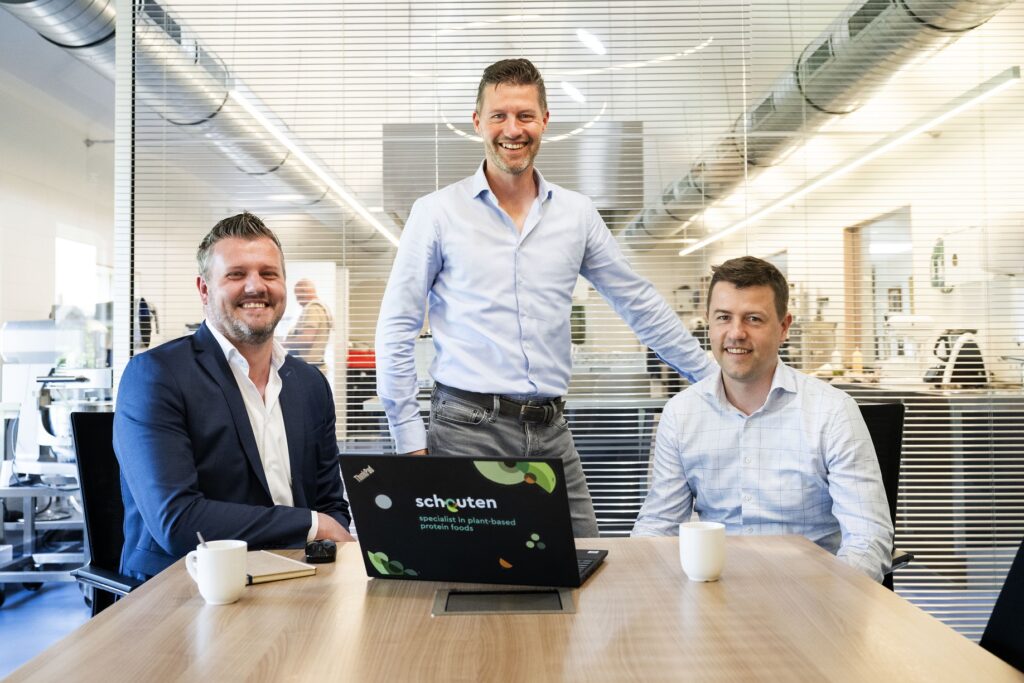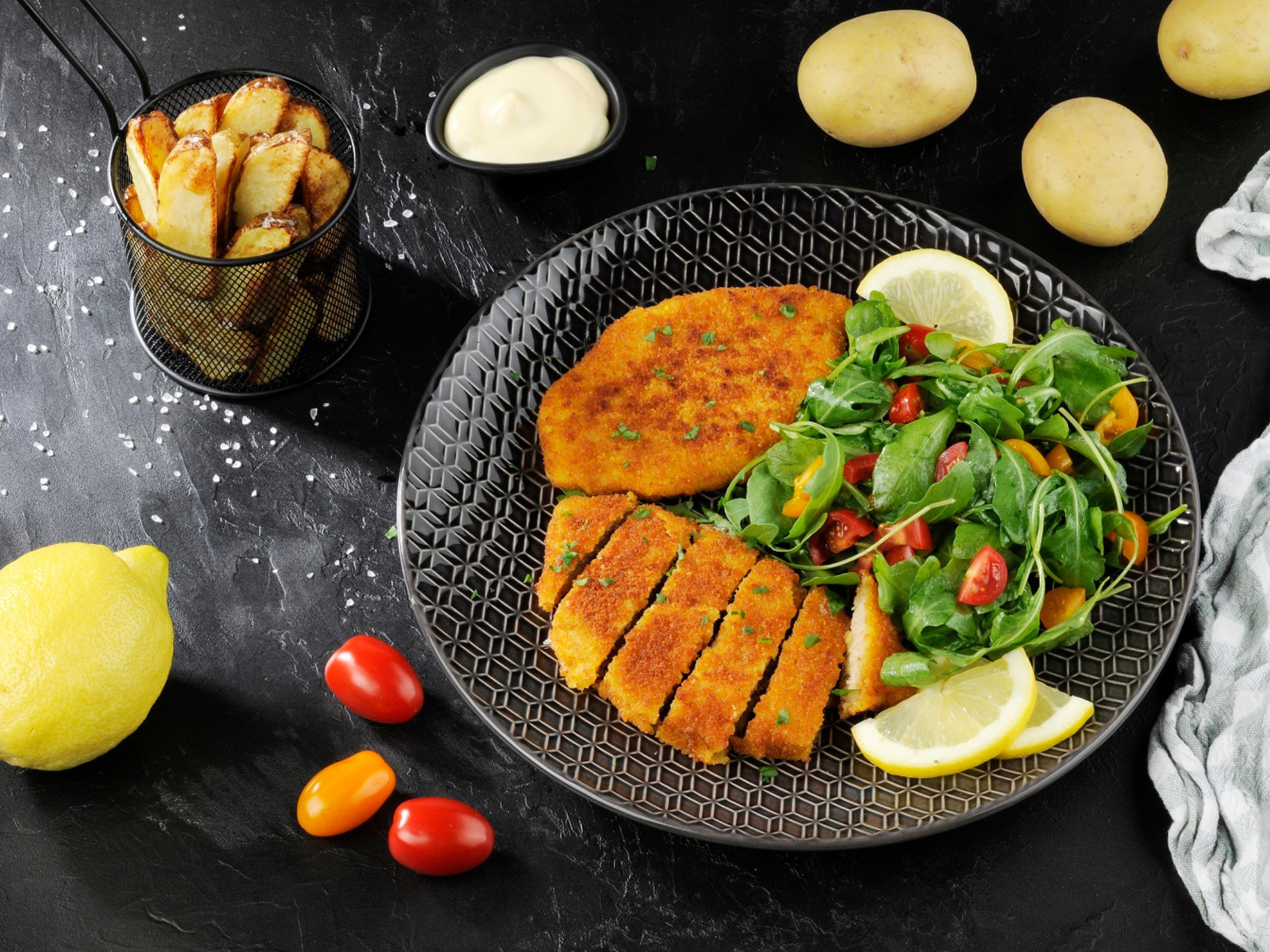NewTexture: Schouten Creates ‘Replacement for Textured Proteins’ with Novel Fibre Technology
4 Mins Read
To address concerns about plant-based meat textures, Dutch company Schouten has introduced a chicken schnitzel made from its NewTexture fibre technology.
When it comes to plant-based meat, one of the biggest pain points for consumers is the texture. For years, many meat analogues have been described as dry, crumbly, mushy, or just unappealing in terms of mouthfeel.
It’s why companies are racing to come up with ways to produce meat analogues with whole-muscle structures that better resemble their conventional counterparts. It’s also why this effort is called the “holy grail” of plant-based meat.
Globally, the texture of vegan meat products is as important as their animal-derived versions for 75% of consumers – but only about 60% are actually satisfied with it.
Similarly, a 1,500-person survey this year found that 42% of Americans are deterred from choosing a meat analogue dish at a restaurant because they don’t think they’ll like the texture. And in Germany, 26% of people say they’d pay more for a plant-based product if it has the same taste and texture as the food it’s hoping to replace.
Responding to these needs, Dutch alternative protein pioneer Schouten has come up with a “self-developed” fibre technology, promising enhanced textures in meat analogues. It’s starting with a chicken schnitzel, which is now available for its foodservice customers.
Fibre technology aims to improve texture and reduce emissions

Schouten explains that a lot of meat analogues require high amounts of energy and what some feel is “unnecessary processing”.
This is why it has developed a novel fibre technology, dubbed NewTexture, which it describes as a “replacement for textured proteins”. The innovation is aimed at providing a better texture for meat analogues, and it results in lower emissions than existing technologies.
“This new subline within our Classics range is the result of years of research and development,” says Niek-Jan Schouten, CEO of Schouten Europe. “We are confident that Schouten’s NewTextures will be a game changer for both our business partners and end consumers.”
Schouten is showcasing the technology in its new chicken schnitzel, made from soy and wheat proteins. This is said to have a uicy texture and white hue characteristic of conventional chicken. In addition to the visual and textural attributes, the schnitzel also has strong nutritional credentials, clocking in 12g of protein per 100g, nearly 5g of fibre, and only 1.2g of saturated fat.
“Meat substitutes are sometimes prepared incorrectly, which can make them a bit dry. These products retain their juiciness, making them even more appealing,” explains Schouten. “The overall package is spot on, and we are very proud of this launch, which will help elevate the product category to a new level.”
Others innovating with fibres to advance meat analogues include Germany’s Project Eaden and US startup Tender Foods, both of which are using fibre-spinning technologies.
It’s all about product diversity

Schouten, a family-owned company, has been making meat analogues since 1990 – one of the earliest movers in the market. It has an extensive product range geared towards customers in over 50 countries, from supermarket private-labels to branded manufacturers and quick-service restaurant chains.
It forayed into seafood analogues for the first time in early 2021 with a vegan tuna product, before releasing new lines of plant-based chicken and beef a few months later.
Outside its Classics line of meat analogues, the company also has a range called Variations, which involves products that aren’t meant to resemble meat. “Ultimately, we believe that meat substitutes don’t always need to mimic meat,” Schouten said. “With legumes and vegetables, we can develop excellent protein-rich products that don’t have a meat equivalent.”
He added: “However, to convince true meat lovers to buy meat substitutes more often, the classics are still essential. It’s important that we continue to improve the quality of these products. That’s why we keep investing in our Classics.”
It was with this line of thinking that the company announced a portfolio of mycoprotein products, through which it also aims to “market products with a lower footprint and less processing”.
These moves have legs, and are being replicated elsewhere too. Beyond Meat, one of the world’s largest plant-based meat companies, recently brought out Sun Sausages in response to consumer demands for whole foods – these links aren’t meant to resemble meat, and are instead made from vegetables and legumes. And just last week, the company said it would soon launch a mycelium-based steak as a clean-label option.



